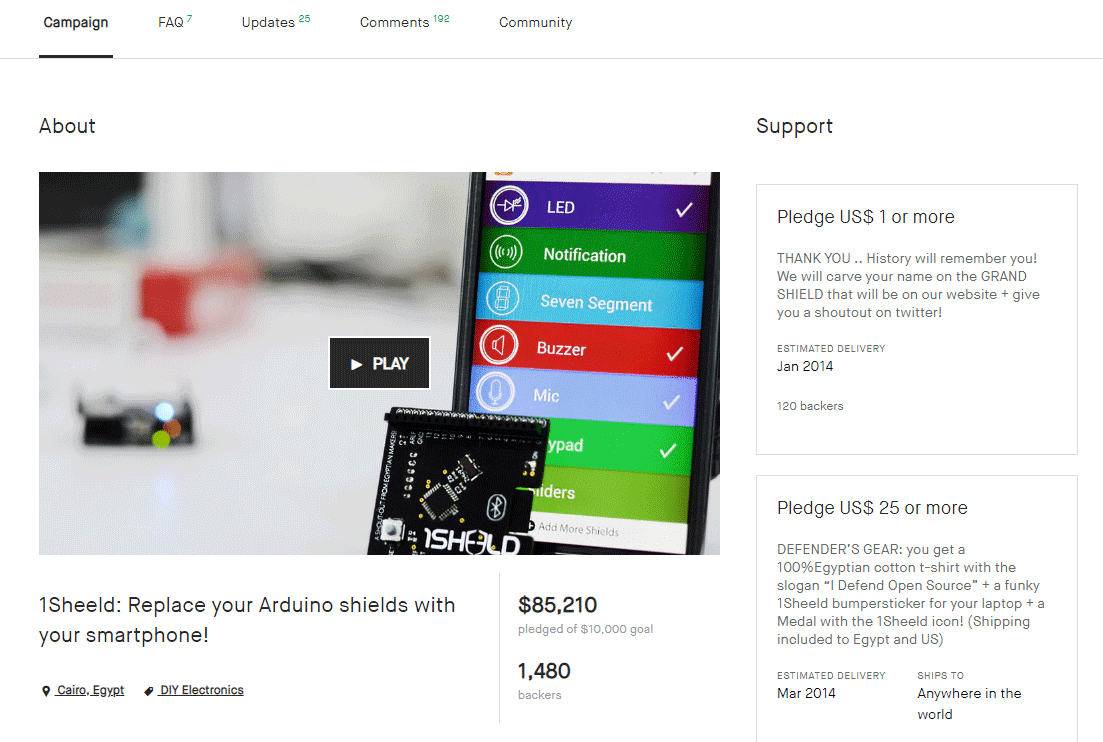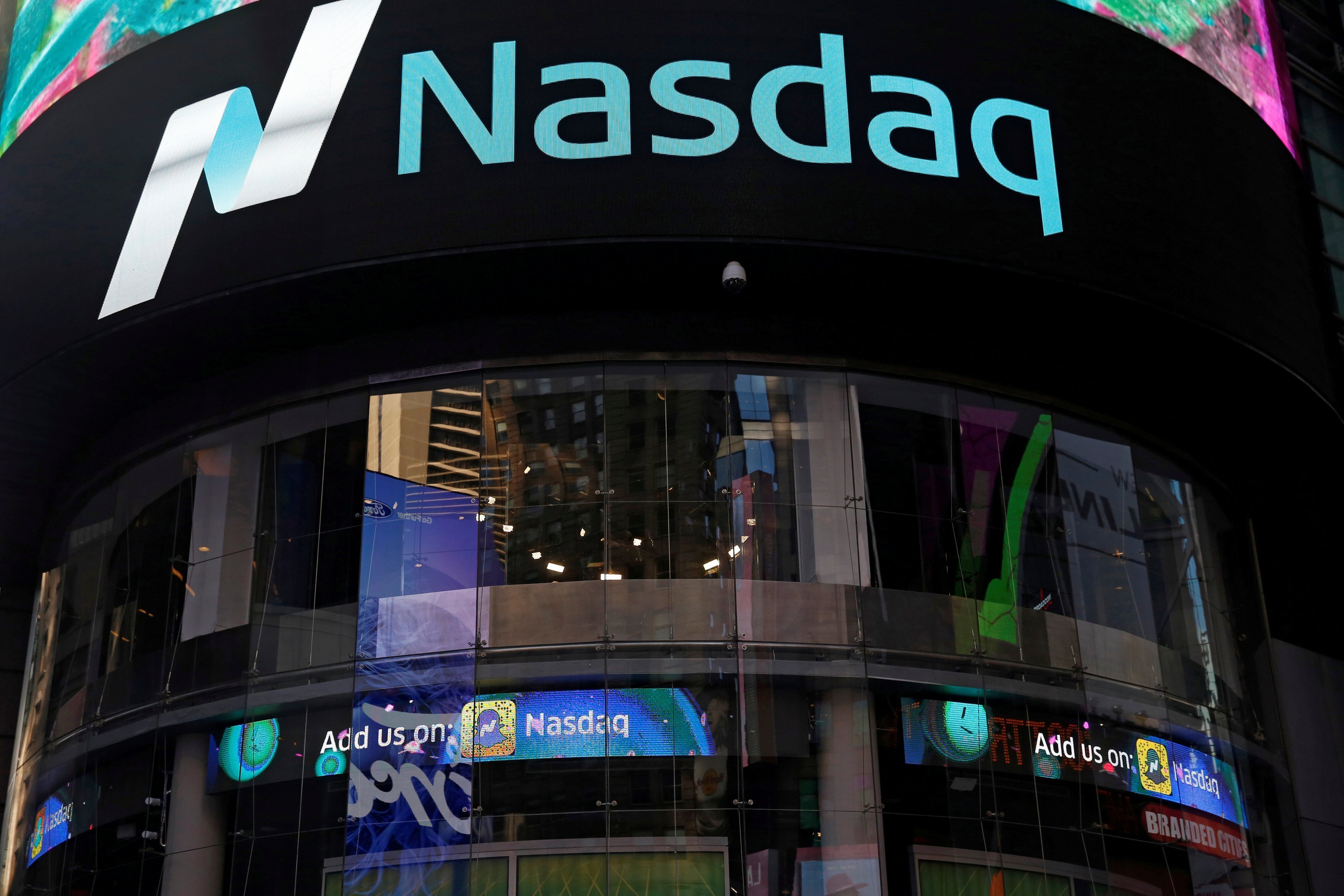mintdice.com

Stock investment has always been a fantastic way for many people to make a passive income. Approximately33% of households in the United States own taxable investment accounts. While the traditional stock market is immensely profitable, a new way to invest has emerged.
The emergence of cryptocurrency has brought about a new, rapidly-developing form of investment. Bitcoin is fast becoming a household name, due to its status as the biggest cryptocurrency by market share and the fact that although there are currently over 1000 cryptocurrencies, it was the first to emerge. Since 2009, the buzz around digital currencies has continued to grow and reached an all-time high in 2017, when Bitcoin hit its peak price of $20,000.
Many people who were early investors in the asset became instant millionaires, and this attracted even more new investors looking for a piece of the cake. But despite its image, the cryptocurrency industry is not all glitz, glam, and Lamborghinis. As much as huge profits can be made, huge losses also plague the industry. The high market volatility, theft, and scams that have come to define the industry, make it a living hell for several investors.
However, what the industry lacks in regulation and stability, it more than makes up for in profit margins. In 2017, Ethereum saw a 10,000% jump in price between January and December, while Bitcoin saw a price increase of 1,500% within the same period. Compared to the best performing traditional stock in that same year, which recorded a 142% increase, the gap in margins is wide.
Unfortunately, while the past performance of these cryptocurrencies is exciting, 2018 has been filled with negative events in the industry that have hindered its performance. From the hacks of notable exchanges like Coinrail and Bithumb to the SEC ICO investigation and rejection of a Bitcoin Exchange-Traded Fund by the Winklevoss brothers, it has been a sad year for cryptocurrencies. Several prominent executives including Jack Ma and George Soros have also gone on record to call Bitcoin a fraud and bubble. This has led many others to admonish the asset while simultaneously praising blockchain, the technology behind it.
In anticipation of a bubble burst in the industry, people are now looking for more stable ways to invest. One of the best available options is to invest in companies that use blockchain technology for reasonable applications. Amidst the frenzy, this guarantees long-term returns and some stability since the stock performance is driven by more than just speculation.
Not only can blockchain technology support the functions of cryptocurrencies like Bitcoin, Ether, and Ripple, it has the potential to revolutionize marketplaces, and the way data is stored and transferred around the globe. Applied properly, and in innovative ways, blockchain may significantly change the future of money, finance and more. It may survive and thrive long after cryptocurrencies like Bitcoin cease to exist. Many different industries are looking into blockchain research and development in search of ways for better fraud prevention security, faster transmission confirmation, and potential cost savings.
According to a recent prediction, blockchain platforms will store 10% of global GDP within the next ten years. This is why it is critical to invest in the corporations with great use cases for it or large corporations that have partnered with blockchain platforms to offer one form of enterprise-facing technology or another. Identifying the companies with the most potential to generate revenue streams with the use of the technology will help investors minimize loss. Many companies employ this technology but based on application, performance, and partnerships, these are the top 5 blockchain stocks to watch:
1. NASDAQ
Nasdaq is one of the leading providers of securities trading, clearing, exchange technology, and listing services. With operations spanning across six continents and an impressive portfolio, the firm aids customers with the planning, execution, and improvement of their businesses. Using advanced financial technology solutions, Nasdaq provides these customers with the necessary insights, analytics and relevant metrics for them to successfully navigate global capital markets.
The New York-based firm currently acts as the powerhouse of over 70 marketplaces spanning across 50 countries and servicing more than 10,000 corporate clients. It also houses the world's first electronic stock market which executes 10% of all global securities transactions. The Nasdaq platform currently lists over 3,600 companies with a combined market value of about $8.8 trillion.
Nasdaq operates at the intersection point between the finance and technology industries by helping investors with the navigation of the securities market. Known in every investment circle, Nasdaq has become an industry leader in the development of innovative securities methodologies. Apart from being the second largest stock exchange in the world, second only to the New York Stock Exchange, the firm has made waves recently for its use of blockchain technology.
NASDAQ BLOCKCHAIN APPLICATIONS
Although the stock market and cryptocurrency market are similar in many ways, they are still far apart regarding regulations and volatility. This hasn’t stopped Nasdaq from exploring and incorporating the use of the technology in its basic applications and operations. The company was one of the first to adopt and implement blockchain technology and is currently on the forefront of blockchain’s transformative potential. With their customers in mind, Nasdaq is gradually transforming the global capital markets through significant acquisitions.
NASDAQ LINQ
In December 2015, the company announced that Chain.com, a blockchain firm and inaugural Nasdaq Linq client was able to use the Nasdaq Linq blockchain for the successful completion of a private securities transaction. The ledger also recorded the transaction accurately, marking the first blockchain application of its kind.
In the transaction, the issuer (Chain.com) was able to successfully document a record of ownership digitally on the Nasdaq Linq platform. This significantly reduced the time taken to carry out traditional clearing and settling, while eliminating the need for issuance of paper stock certificates. Apart from equity management, Nasdaq Linq provides issuers and investors the opportunity to complete and execute subscription documents online.
Chain.com is one of the most prominent providers of blockchain infrastructure and support to enterprises, especially financial institutions. The firm provides businesses with a platform for the secure issuance and management of digital assets using blockchain technology. They service customers in various markets, including banking, payments, telecommunications, capital markets, and energy markets. Based in San Francisco, CA, Chains.com has received funding from top venture firms and investors like Thrive Capital, Khosla Ventures, RRE Ventures, Visa, Citi, Nasdaq, Capital One, Fiserv and Orange.
According to former Nasdaq CEO, Bob Greifield, the company believes that the success of the transaction is a huge milestone in the advancement of the global financial sector and blockchain as a whole. He stated that this initial application of blockchain technology serves as the beginning of a process that could disrupt the core infrastructure of capital market systems. It could also proffer positive outcomes for outdated settlement and administrative functions.
Adam Ludwin, the CEO of Chain.com also expressed positive sentiments over the partnership with Nasdaq, stating that the transaction met all objectives seamlessly, drastically reducing manual ownership transfer time in the process. Blockchain technology can potentially expedite clearing and settlement from the current time standard of three days to as little as ten or fifteen minutes. This way, exposure to risk can be reduced by more than 99%, lowering systemic risks and capital costs in the process.
BLOCKCHAIN FOR MUTUAL FUNDS
Nasdaq has also made plans to roll out its blockchain-for-mutual-funds solution in Nordic countries. The solution is designed to ease the brokerage issues generally associated with mutual funds. Normally, these transactions are carried out through a third party brokerage or the fund company directly. When the transaction involves buying a foreign mutual fund, things become even more complicated for the investor. To ensure that the transaction is verified, there has to be communication between all parties involved and the presence of intermediaries complicates the process.
As a result of the old methods used to verify transactions and track fund ownership, the process is inefficient. There are often errors, especially due to the country-specific record requirements. This often causes involved parties to start over, leading to a waste of time and resources. However, with blockchain technology, Nasdaq is working to solve these issues by eliminating most third-party involvement.
Due to the distributed nature of a blockchain, depending on Nasdaq’s specifications, country-specific requirements may be overruled. Overall, the application of this ledger technology will result in a more efficient process for issuers and investors. The platform has already been deployed among the Swedish mutual fund families and will be deployed to all Nordic countries soon.
CITIGROUP PARTNERSHIP
In 2017, Nasdaq announced a collaboration with CitiGroup which involved integrating the latter firm’s business payment service with the Nasdaq blockchain platform. Citi's bank transfer system handles transactions associated with commerce including payroll, dividend, and interest. The union of both platforms gave rise to the first enterprise blockchain transactions using the CitiConnect tool. On the joint platform, Nasdaq Linq automatically reconciles Citi payment transactions in real-time.
Nasdaq’s latest blockchain venture came in June 2018, when the firm announced the successful testing of its blockchain-based Proof-of-Concept (PoC) protocol. The Proof-of-Concept was created in a collaborative effort with ABN AMRO Clearing, Euroclear and EuroCCP. It will provide efficient round-the-clock securities collateral solutions for issues associated with making margin calls after trading hours are over. This will eliminate potential losses and make the process easier.
WHY SHOULD YOU INVEST IN NASDAQ?
Nasdaq's adoption of blockchain technology holds promise for the future of finance. Each partnership brings a different and more creative approach to so many problems faced by stock exchanges and investors. Even if cryptocurrencies cease to exist one day, Nasdaq will probably still be around, transforming the investment landscape as it has done since 1971.
2. IBM
Despite the popularity of International Business Machines (IBM) and the long string of blockchain partnerships the firm has accumulated, it is still considered old tech in the world of investment. This misconception stems partly from the fact that in the last five years, the company has only posted one-quarter of revenue growth. In that same amount of time, IBM has lost 20% of its value even though tech shares have more than doubled in price generally.
Despite its poorly performing stock, IBM is an excellent investment in one significant aspect: blockchain technology. The tech giant has managed to establish dominance in the cryptocurrency industry through a series of bold moves, centered around enterprise payment solutions. At this rate, IBM stock could see a major change in coming years.
Just like traditional financial institutions, Wall Street has not shown much acceptance towards cryptocurrency. This is mostly due to the lack of regulation that protects investors’ funds. It is also due to the theft and general insecurity in the industry. As a result, to some extent, IBM’s blockchain developments have not been fully recognized. While the idea of immutable digital public ledgers looks good on paper, the reality poses several complications. It also brings change, which the financial industry may not be ready for.
IBM BLOCKCHAIN APPLICATIONS
Since its decision to enter into the world of blockchain, IBM has made several significant partnerships that have sealed its place as a high roller in the industry. The firm’s foray into blockchain began with the development of a public cloud service known as IBM Blockchain which runs on the Hyperledger Fabric, an open-source platform created by the Linux Foundation.
IBM blockchain allows users to build their own blockchain networks for various applications in a safe and straightforward way. The firm’s partners have all brought their unique applications to its platform. Each one is a leading innovator with the aim of transforming the industry.
STELLAR LUMENS PARTNERSHIP
IBM announced its partnership with Stellar Lumens in October 2017. According to the announcement, the partnership is geared towards facilitating cross-border payments, especially in developing countries. At the time of the announcement, both partners along with KlickEx Group had tested the use of their technology in the South Pacific Region. Leveraging Stellar’s token, Lumens or XLM, which has a current market capitalization of over $3.6 billion, and KlickEx’s financial experience and prowess, IBM is making payments easier for South Pacific residents.
Stellar will act as the intermediary between participating banks by allowing them to convert their currency to Stellar Lumens before carrying out transactions. For example, a company in South Korea that wants to send money to another in Malaysia will convert South Korean Won to Lumens which will then be converted to Malaysian Ringgits in a few seconds, at a low cost.
The firm is currently working with twelve major banks in the region to process cross-border payments on its platform in real-time. This will make the process more efficient for all relevant stakeholders. Technically, IBM and Stellar Lumens are competitors in the blockchain space but have embraced an open-source approach which will benefit the industry in the long run.
VERDE BY VERIDIUM LABS
Veridium Labs has been a force for environmental change since it first emerged with a plan to reduce carbon footprint by making it easier to trade carbon credits. The company has already formed important partnerships with corporations like KPMG and Infinite Earth to see its mission through. However, one of its most recent partnerships is with IBM and was announced by the latter firm in May 2018.
To make the tracking and trade of carbon credits easier, Veridium Labs created its token called VERDE. Each token is embedded with a “carbon charge” which gives it an “Emissions Offset Capacity.” This functions as the digital form of a battery which carries a charge to power the token. When VERDE tokens are used in the process of conducting trades, they discharge parts of their carbon capacity. This mitigates the negative environmental impacts of products.
BATAVIA BY INTERNATIONAL BANK CONSORTIUM
IBM recently partnered with the International Bank Consortium, consisting of Bank of Montreal (BMO), CaixaBank, Erste Group, Commerzbank and UBS to create a blockchain-powered trade platform. The platform successfully concluded tests involving five live pilot transactions. Some of the transactions included textile trade between Austria and Spain as well as automobile trade between Germany and Spain.
The trade platform, known as Batavia, executes smart payments and closes trade agreements using blockchain ledger technology. The success of the pilot transactions show that the technology can potentially change commerce globally, making it a less expensive, more efficient process.
FOOD SAFETY ALLIANCE WITH WALMART & JD.COM
IBM also partnered with Walmart and JD.com, a Chinese retailer, as well as Tsinghua University in Beijing to improve the food safety and tracking process in China. The partnership has given rise to the emergence of a Blockchain Food Safety Alliance for the food industry on a global scale. According to Walmart, blockchain can make the process of food tracking easier, while fixing the issues associated with the current supply chain in the process.
WHY INVEST IN IBM?
IBM is a staunch believer in the power of blockchain and is making significant investments to back up their belief. According to Marie Wieck, IBM general manager of blockchain initiatives, the adoption of blockchain by governments and businesses, may add an estimated $3.1 trillion of value to the global economy by 2030.
The firm has also expressed intentions to continuously pursue not just blockchain applications but those of Cloud and Artificial Intelligence technology as well. The drop in IBM stock has been attributed to the fact that many market players are focused on the long term. While this is not encouraging, there are many reasons to invest in IBM.
For now, the attention mostly focuses on the smaller blockchain startups that emerge regularly. Some of these companies provide sketchy whitepapers and promises of what they hope to achieve with their technology. On cue, investors troop in from all areas of the world to bet on such companies by participating in Initial Coin Offering (ICOs).
IBM however, is a better option than such companies because it offers the promise of long-term sustainability. If Bitcoin is indeed a bubble and the bubble bursts, most blockchain companies involving ICOs will take considerable hits and in some cases, cease to exist. On the other hand, a company with a solid tech background and years of experience like IBM will not take as much of a hit. If it does, it has a good chance of recovering. Apart from this, there are a few other reasons to add IBM stock to any investment portfolio:
- IBM currently occupies the number one rank in blockchain according to a survey of 400 managers, executives and leading tech professionals, by Juniper Research, a digital commerce and financial technology research firm.
- The firm was ranked first by 43% out of all the businesses either actively considering blockchain adoption or are in the process of deploying it in various forms. Microsoft was ranked second by 20%.
- IBM is currently involved in heavy blockchain research and development initiatives, including its role in the development of Hyperledger Fabric. This technology will act as a launchpad and operation base for several business applications soon.
- The firm has built an impressive list of Fortune-500 clients across various industries.
- IBM beat Wall Street analysts’ earnings and revenue estimates for the fourth quarter of 2017. Operating earnings of at least $13.80 per share are expected from the company in 2018.
- After a discouraging stagnation for 23 quarters, the company recorded a year-over-year revenue growth. New technologies showed a year-over-year growth rate of 11% and a quarterly growth rate of 17% for the quarter. This means that new technologies now constitute 46% of the company’s total sales. Cloud revenues also recorded a year-over-year growth rate of 24%, amounting to $17billion in the last 12 months. These figures show that the company may finally be headed towards a positive growth trajectory.
- The firm is constantly developing technologies that have excellent use cases and make adoption easier.
3. HITACHI
Being one of the biggest firms in Japan, it is not surprising that Hitachi has adopted blockchain technology. The multinational technology firm is known for its long string of enterprise solutions and its bullet trains. However, it has added blockchain to its diverse portfolio. The corporation is currently developing a financial solution that uses blockchain technology like smart contracts to make trading and payment processes more secure.
Hitachi’s foray into blockchain began in 2017 when the company became one of the founding members of Hyperledger. Its role in stabilizing Hyperledger operations, and creating the application development environment has contributed to the success of the hyperledger fabric which powers several blockchain applications including the IBM Blockchain.
HITACHI BLOCKCHAIN APPLICATIONS
Apart from its Hyperledger contributions, the company has made significant blockchain moves as far as innovation, and research and development are concerned. Currently, they are developing a solution to insure property and casualties. The solution uses blockchain technology to streamline communication in the event of an accident as well as purchase confirmations and verifications by making it easier to share information.
The company is also developing a trade solution which will manage most of the normal tasks in the trade flow. These tasks include contracts, clearing, and settlement. The platform synchronizes the status of contracts with the workflow and uses smart contracts to automate payment deposits and execution. This ensures that the tasks are performed more easily and efficiently.
Another project that the company is currently working on centers around payment traceability. Using this platform, users will be able to track the origin and destination of orders easily. It is specifically tailored to parts manufacturers and will solve a lot of supply chain problems. They aim to continue their committed research and development efforts to find and produce more use cases for blockchain technology.
WHY INVEST IN HITACHI?
Although the firm hasn’t been involved in blockchain development for as long as other companies like IBM, they’ve been actively working to close that gap. They have developed a 3-phase approach to blockchain applications as follows:
- Development and standardization of the Blockchain: Hitachi has been working, through Hyperledger, to develop a global-standard blockchain functionality. The Hyperledger program is an international non-profit initiative for the standardization of blockchain technologies. It was established in the United States by the Linux Foundation and currently has almost 200 members in the form of various companies and organizations. The firm believes that the technology will have a high social impact and is dedicated to standardizing it, to maximize its benefits.
- Research and development: The company is investing heavily in the research and development of more efficient functions for financial solutions. Their experience in creating such solutions is a solid foundation for the integration of blockchain technology. These functions also include security, a much-needed feature for any product within the industry. In light of recent hacks and thefts of cryptocurrency, Hitachi’s dedication to security is much needed. The company recently established the Financial Innovation Laboratory for FinTech R&D in Silicon Valley. The laboratory will serve as a base and accelerator for collaborative blockchain innovation with financial institutions.
- Consideration of use cases for social infrastructure: Apart from financial services, Hitachi has been exploring service applications that center around other types of businesses. This way, the company hopes to leverage their expertise in a broader scope of domains and apply their use cases in a social domain. One way Hitachi is achieving this is by creating each of the blockchain prototypes discussed earlier, which use a Proof-of-Concept (PoC) testing protocol. This protocol connects different types of businesses with the use of a blockchain.
The problems that Hitachi is trying to solve, cut across almost every industry in a broader sense. The conglomerate also has more than a century of tech experience in its bag and investors can be assured that it will thrive in the long run.
4. DAIMLER AG
This German multinational automotive corporation has made a name for itself through ownership of shares in several prominent automotive companies including Mercedes-Benz, Mitsubishi Fuso, Mercedes-AMG and Detroit Diesel amongst others. It is currently the thirteenth-largest car manufacturer in the world, selling a total of 3.3 million units in 2017 alone.
Despite its popularity for manufacturing cars, Daimler AG has also seen considerable success from Daimler Financial Services; it’s financial arm. The automotive giant is also known for its presence in the global tech industry and has made recent innovative moves within the space. One of the most recent projects the firm has embarked on involves the testing of Blockchain technology for financial purposes.
Daimler AG recently announced its partnership with Landesbank Baden-Württemberg (LBBW) to execute a financial transaction using Blockchain. Every step of the transaction including origination, allocation, distribution, and execution were facilitated by the technology. The purpose of the test was to find out more about the new technology for the purpose of creating more efficient business models.
According to the Daimler website, the company has set up a €100 million 1 year loan instrument known as a Schuldschein through Landesbank Baden-Württemberg with several major savings banks acting as lenders. Due to the success of the test, Daimler has stated intentions to integrate blockchain technology into the full spectrum of its business activities.
The product of the partnership between Daimler AG and Landesbank Baden-Württemberg, shows how various sectors interconnect where technology is concerned. The firm believes that this technology can disrupt the entire value chain including sales and marketing, customer relations, supplier management, financial services, and digital services.
WHY INVEST IN DAIMLER AG?
So far, the firm has been successful in the automotive industry. Its longevity and years of experience are a solid foundation for its adoption of Blockchain. Daimler has also been an active participant in the global technological innovation space, with an affinity for open source culture. The firm’s investors will get the chance to profit from a company that has already shown a significant history of past success and a willingness to innovate when necessary.
5. HIVE BLOCKCHAIN TECHNOLOGIES
This is currently one of the top blockchain stocks. It is also the only corporation on this list that has direct cryptocurrency and blockchain roots. It was founded in 2017 through a partnership between Genesis Mining and Foire Group. HIVE Blockchain was created with the purpose of accelerating the development of the blockchain industry. It is currently the largest blockchain infrastructure company and covers mining operations for up to 8 cryptocurrencies including Bitcoin, Ethereum and Litecoin. Since its creation, the company has raised up to $115 million in funding.
Genesis Mining was founded by Marco Streng along with a team of early Bitcoin investors and is currently a global leader where mining is concerned. Mining involves a distributed network of computers that secure a Blockchain network by validating the transactions carried out on it.
So far, Genesis Mining has created several products and built their first large-scale Bitcoin mining farm in 2014. Two years later, the company established the largest Ethereum mining farm in the world. That same year, Genesis Mining launched the Logos Fund which caters to top-tier venture capitalists and has raised more than $100 million in assets to date. The company currently services more than 1 million customers and employs hundreds of staff globally.
HIVE Blockchain is working towards bridging the gap that currently exists between capital markets and Blockchain innovation. The company is achieving this through its multiple cryptocurrency mining farms. The farms, which have been placed at strategic locations, house equipment and miners who validate cryptocurrency transactions on various Blockchain networks, including Bitcoin.
They also recently announced plans to expand their mining operations and capabilities. To this effect, the company has secured an additional large-scale mining facility as well as $100 million in funding. HIVE Blockchain joined the Canadian TSX venture exchange in September 2017 and became the first publicly traded stock on a major stock exchange, which solely deals in cryptocurrency mining.
WHY INVEST IN HIVE BLOCKCHAIN?
Hive Blockchain leverages the experience of Genesis Mining Group to establish and maintain the infrastructure that users of Blockchain networks heavily benefit from. The company is currently at the forefront of global mining operations and plans to keep going. It’s plans for expansion, and it’s excellent use case are major reasons why this particular stock is one to watch.
FINAL THOUGHTS
Although the profits accrued from stock investment can be attractive, it is important to select stocks deliberately instead of rushing into it. Blockchain stocks are even tougher to predict because of the volatility of the industry and how quickly and drastically stocks can be affected by events.
However, when choosing a stock, long-term sustainability is an excellent place to start. Each of the stocks mentioned above have shown strong foundations in one sector or the other, coupled with experience and in some cases, competitive advantage. IBM has been around for a long time, just like Hitachi.
While the former has become a household name, it has seen revenue stagnation for the past few years. This means that apart from long-term sustainability, the potential to perform is something else to look out for. A good way to find out is by looking at the quality of the company’s newest products and how willing they are to innovate.
While ICOs seem like a quick way to get rich, some of them turn out to be scams. Investing in the stock of companies like Nasdaq may not bring overnight wealth, but the risk of loss is greatly minimized.






















